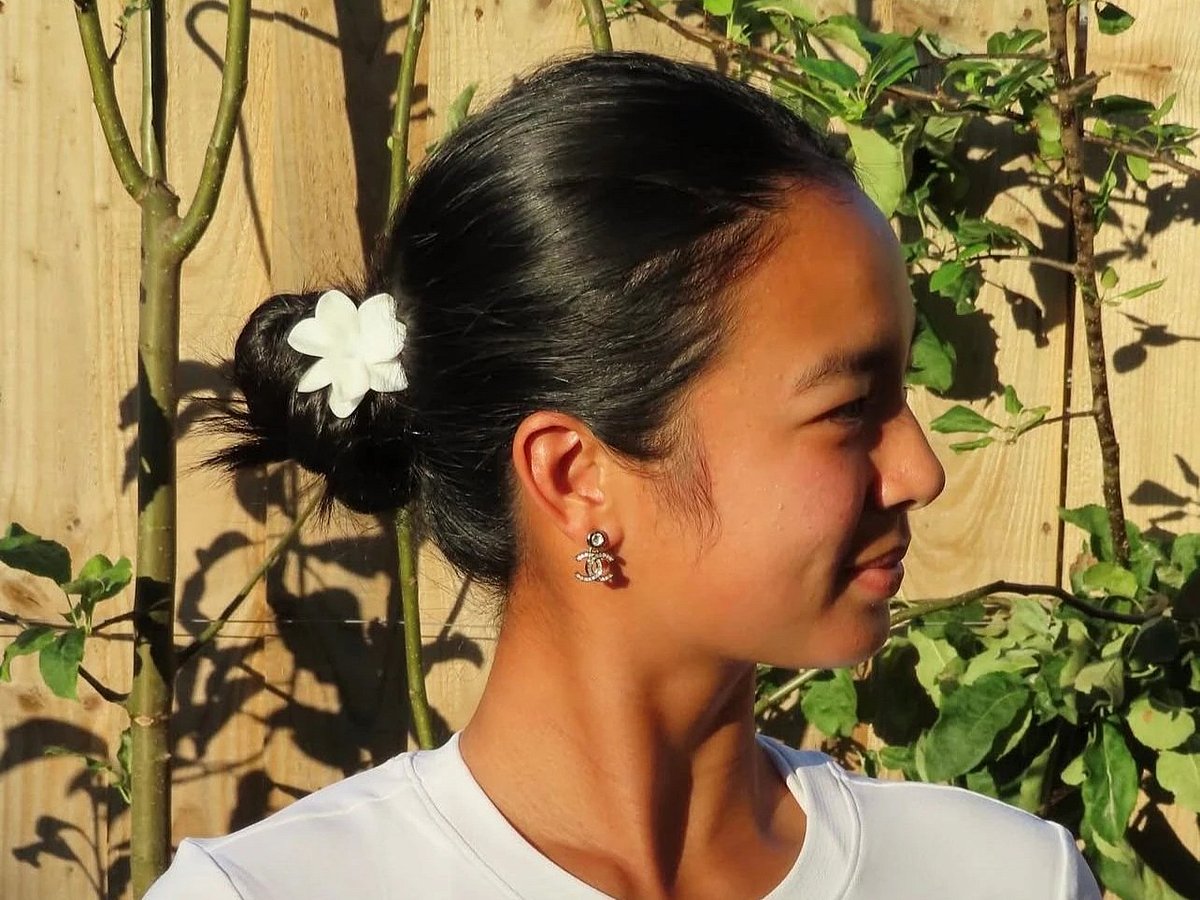Why Alex Eala wore a sampaguita: The Filipino flower with a legendary story
The National flower is steeped in rich folklore and tradition, embodying peace and promise

There's no denying it.
Filipina tennis star Alexandra Eala made sport bend to her will.
She entered the world’s top 100, climbing to a career-high No. 56 on the WTA Tour, the highest any Filipino player has ever gone. She did more than just break ceilings; she bulldozed them, just armed with a racket.
As she is all about firsts, she entered the Wimbledon’s main draw this year—the first Filipina ever to do so. Centre Court. Barbora Krejcikova. The pressure of a nation on her shoulders.
But, she handled it like it was just another Tuesday.
Here’s where the story gets even more poetic. Before her Wimbledon debut, Nike sent her a gift that wasn’t about performance gear or flashy branding. It was a simple white box, lined like a mini tennis court, holding a single, delicate accessory: A sampaguita-inspired hair tie. Inside, a note read, “The sampaguita—the flower of my country. A reminder of where I come from and everything that brought me here,” Eala had written on Instagram, sharing the gift with fans. Nike’s own message turned up the feels: “The sampaguita: delicate, radiant, resilient, is more than the Philippines’ national flower. It is strength. It is belief. It is home. And today, you carry it with you. Every dream begins as a seed. Kung may tinanim, may aanihin. And what you plant, you’ll one day reap.”
Yes, it’s just a hair tie, but it’s also a love letter to heritage. In a world where sponsorships often feel like transactions, this was storytelling at its best: intimate, thoughtful, and rooted in cultural pride.
The sampaguita: A flower of promise
And that brings us to the flower itself. The sampaguita, small but mighty, has been the Philippines’ national bloom since 1934. Sweet, fragrant and symbolising purity and strength, it has long been woven into Filipino identity—and it was literally woven into Eala’s hair as she stepped onto the world’s most storied court in July.
The sampaguita is also steeped in folklore, and while stories vary, the underlying theme of promise remains constant. One tale, The Legend of the Address Sampaguita: The Story of Forbidden Love, Eternal Sacrifice, and the Birth of the Flower of Hope, which is from the book The Magical Story of the Lands of a Thousand Islands: The Collection of Filipino Folk Legends by Indonesian author and researcher, Laras Wening, tells of two feuding tribes whose conflict shifts when a Tagalog leader’s daughter falls in love with a prince from the rival tribe. The couple finds solace near a large Kamuning tree, where sweet fragrant white flowers grow. Tragedy hits, the daughter dies, and the prince mourns her grave for years. Filled with remorse, both tribes vow never to go to war again.
From the site of her blood, a new plant sprouts, producing small white buds whose comforting scent symbolises the promise they made. This flower comes to be called sa-m-pa-guita, meaning “I pledge” or “promise.”
Carrying the promise of love
Another version, shared by Filipina artist Una Artesena, tells of Princess Lakambini and Prince Lakan Galing. The young princess inherits a kingdom and faces threats of invasion. A valiant prince comes to her aid, and the two swear undying love on a hill by the sea: “Sumpa kita!”—“I promise you.” Before they could wed, the prince leaves to fight enemies at sea and never returns. Lakambini dies of a broken heart, and when she is buried on the hill, a flower blooms over her grave—the sampaguita—carrying the memory of their promise.
Though details differ, these tales converge on one central truth: The sampaguita is more than a flower. It is a symbol of love, hope, and enduring promise, a perfect metaphor for the grace, strength, and heritage Alex Eala carried onto the world stage.
Currently, Eala saw her US Open run end at the end of August, bowing out in the second round after a straight-set defeat to Spain’s Cristina Bucsa in New York. Even in defeat, her journey continues to inspire, much like the sampaguita that blooms against all odds—small, delicate, yet resilient. Her legacy is in the promises she carries with her, on and off the court, each step a testament to heritage, hope, and enduring strength. The rising Filipina tennis star will return to the court in September at the SP Open in São Paulo, Brazil, where WTA tennis returns after a two-decade absence.
It's a promise.
Network Links
GN StoreDownload our app
© Al Nisr Publishing LLC 2026. All rights reserved.